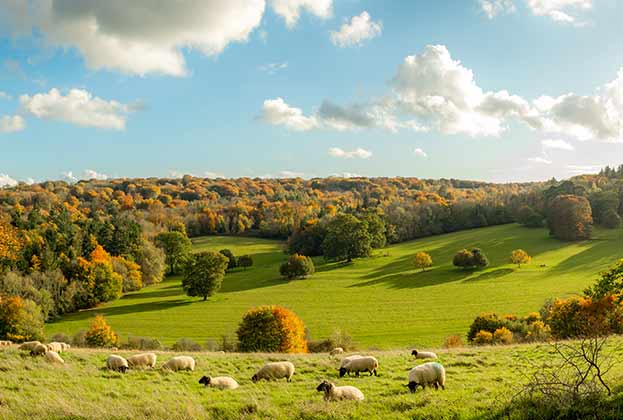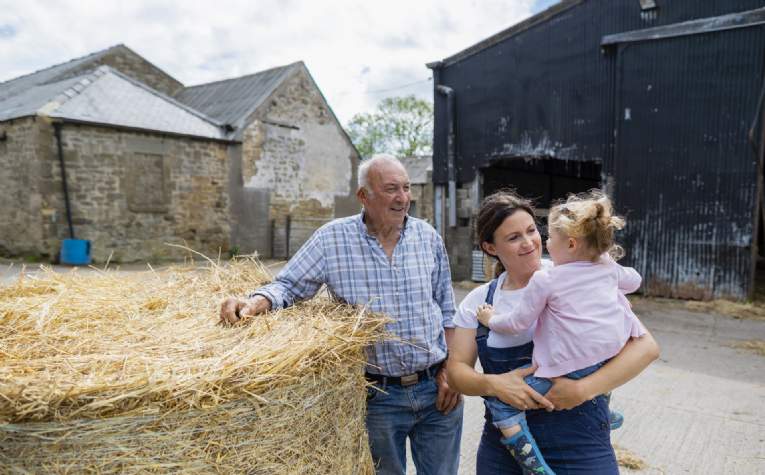Many of us have a dream of moving to the country, escaping city life to set up a hobby farm, run some holiday cottages or perhaps a kitchen garden. The dream is one thing but the practicalities are another. So what fundamentals do you need to consider before making the leap?
1. Farmland needs to be managed in some form or another, whether by simply keeping on top of grass or full-scale arable operations. Such management typically requires machinery or livestock which can often be provided by local farmers. It is important to consider the options in advance and make documented agreements with engaged third parties in order to avoid dispute and ensure that responsibilities are properly allocated.
2. Any plans to develop enterprises or restore buildings should take note of the local designations, planning policy and sensitivities. For example, an Area of Outstanding Natural Beauty (AONB) or designated Greenbelt will be subject to an extra layer of protection and can limit the use of rural property. Seeking advice prior to commencing work or investing in development projects is vital.
3. Farm subsidy is a complex area and can often trip up unsuspecting first-timers. Management of farmland typically entitles the manager to a level of EU support, but in return for compliance with a series of rules and regulations, such as hedge cutting guidelines, livestock records and the application of plant protection products. Furthermore, there may be rural grants available for new businesses, habitat improvement or local community projects that can be accessed by virtue of new ownership. Where EU funding is involved, however, so too is paperwork and a certain degree of red tape – which often requires specialist advice.
4. Public rights of way go hand in hand with the countryside. Where property is subject to footpaths, bridleways or byways, for example, there will be an element of management required to ensure the paths are accessible and maintained. Unfortunately public access can also prove to be a contentious issue with dog walkers, trespassing and illegal uses of paths. Landowners have a duty of care to protect the wellbeing of public on their the land, which brings with it a liability and requirement for proactive management. Equally, it is important for landowners to protect their own interests and tackle any unauthorised activity that could either de-value it or act as an ongoing nuisance.
5. Swapping a garden fence for miles of hedgerow, fence of stone wall can also create issues. Boundary management is an important issue to address, particularly where boundaries adjoin roadsides. Landowners are encouraged to assess risk along any public highway and ensure that hedges or trees are safely maintained. Boundary disputes are also commonplace in rural areas with encroachment and maintenance obligations capable of causing disputes with neighbours. Accurate conveyancing should set the record straight from the outset, but regular inspections and maintenance programmes can help retain the property’s integrity.
Further information
For more information and guidance, contact Savills farms and estates services team.
View available farm properties for sale in the UK.
(1).jpg)
.jpg)
.jpg)
.jpg)
.jpg)

.jpg)


.jpg)
.jpg)